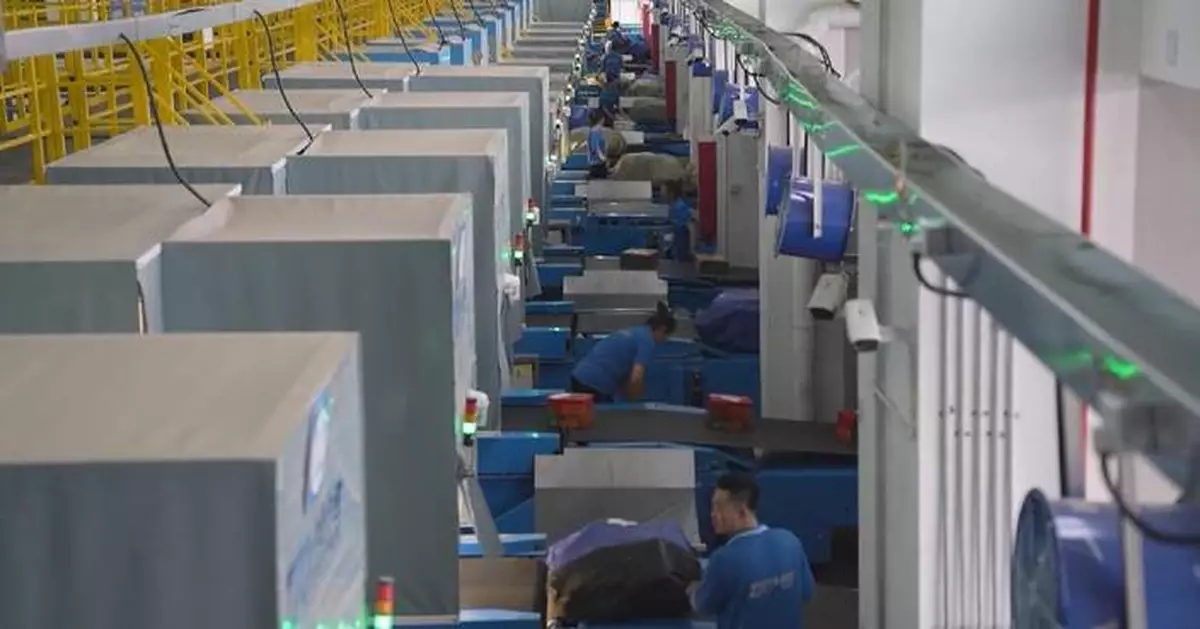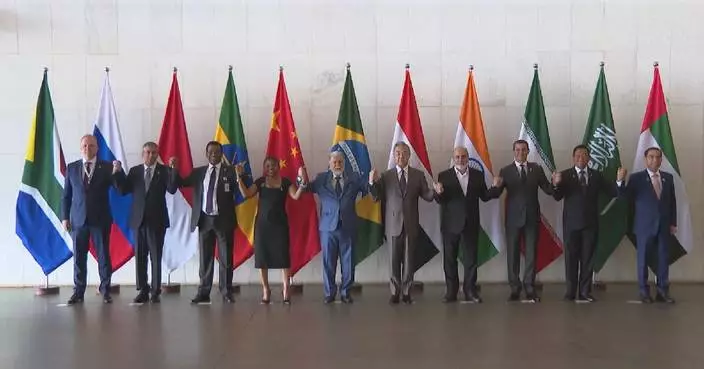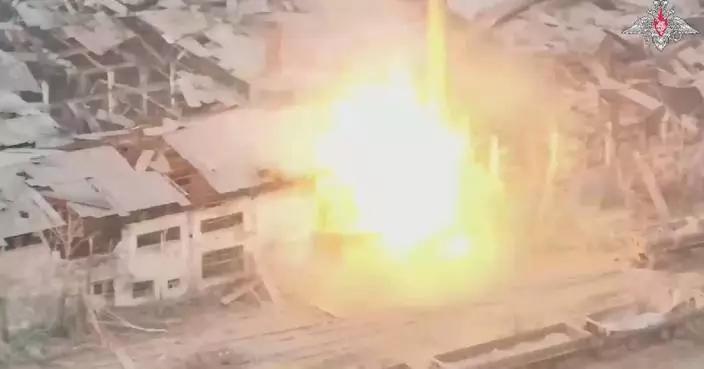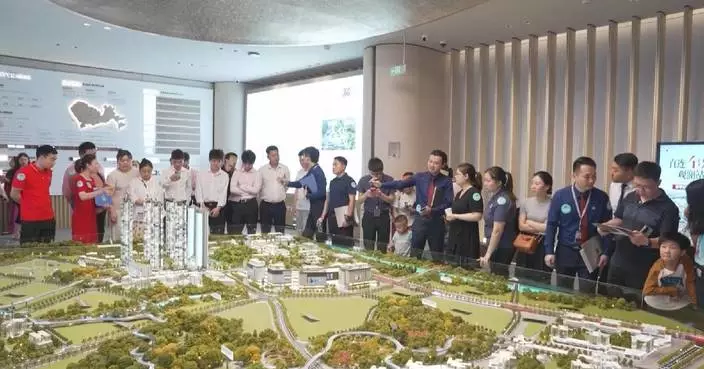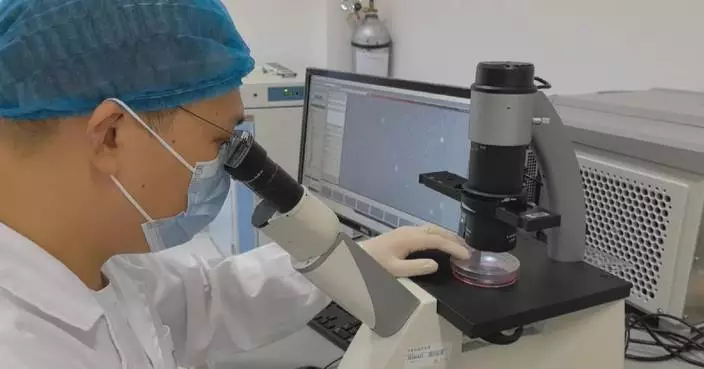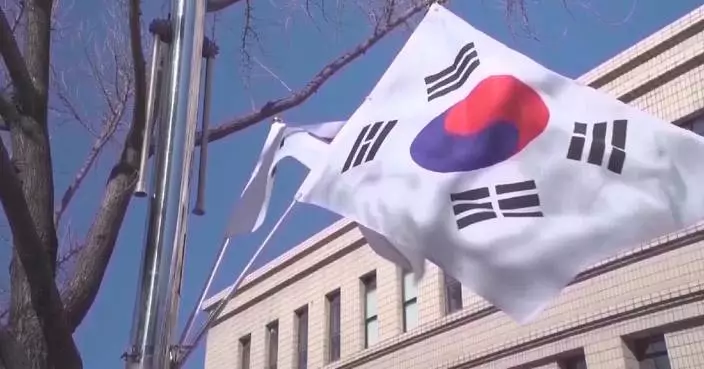China's express delivery volume has surpassed 50 billion parcels this year, reaching the milestone 18 days earlier than in 2024, according to data from the State Post Bureau
The figure translates to an average of 35 packages per person so far. On a daily basis, 500 million parcels are in transit across China, with a delivery rate of over 5,700 per second.
Industry experts attribute the surge to continued growth in online shopping, improved delivery infrastructure, and advancements in smart logistics. The pace shows no signs of slowing, positioning China as a global leader in parcel delivery and supply chain efficiency.
Driving this growth is a national push to expand the three-tier logistics system linking counties, towns, and villages.
In Yangchang Town, Nayong County, southwest China's Guizhou Province, batik artist Yang Li and her team of embroiderers of Miao ethnic group are racing to fulfill orders for their handcrafted ethnic garments.
Thanks to booming online sales, Yang’s product line has expanded to include shoes, handbags, and fans, with 300,000 orders so far this year, up 30 percent from last year, reaching customers as far as Zhejiang, Guangdong, and Fujian provinces.
Yet success comes with challenges. The intricately pleated skirts and sashes are entirely handmade and prone to damage during transportation.
"Our skirts and waist wraps are folded by hand, so packaging is demanding. They can’t be can't be squashed. We’ve had instances where items were damaged in transit," said Yang, manager of an ethnic batik and embroidery factory.
To address this, local government agencies and village logistics hubs have stepped in, providing customized packaging materials tailored to different product types, improving delivery speed, and enhancing after-sales services.
These measures aim to help unique ethnic goods make their way out of the mountains and into the mainstream market.
Today, China boasts the largest postal and courier network in the world.
A total of 346,000 village-level logistics service stations now handle over 100 million rural parcels daily.
"China’s consumer market is diversifying and upgrading constantly, which is driving the expansion of the courier industry. The sector is constantly extending its service network, innovating services, and enhancing quality to further meet diversified consumer demands," said Liu Jiang, director of the Strategic Planning Research Department with State Post Bureau's Development Research Center.
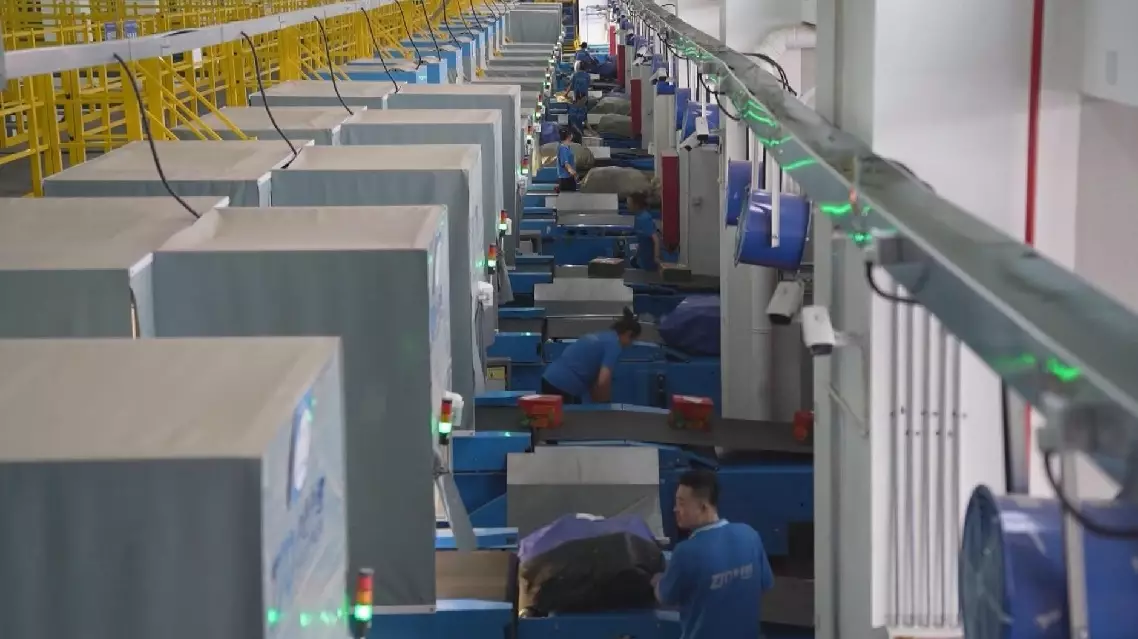
China's express delivery volume hits 50 billion so far this year
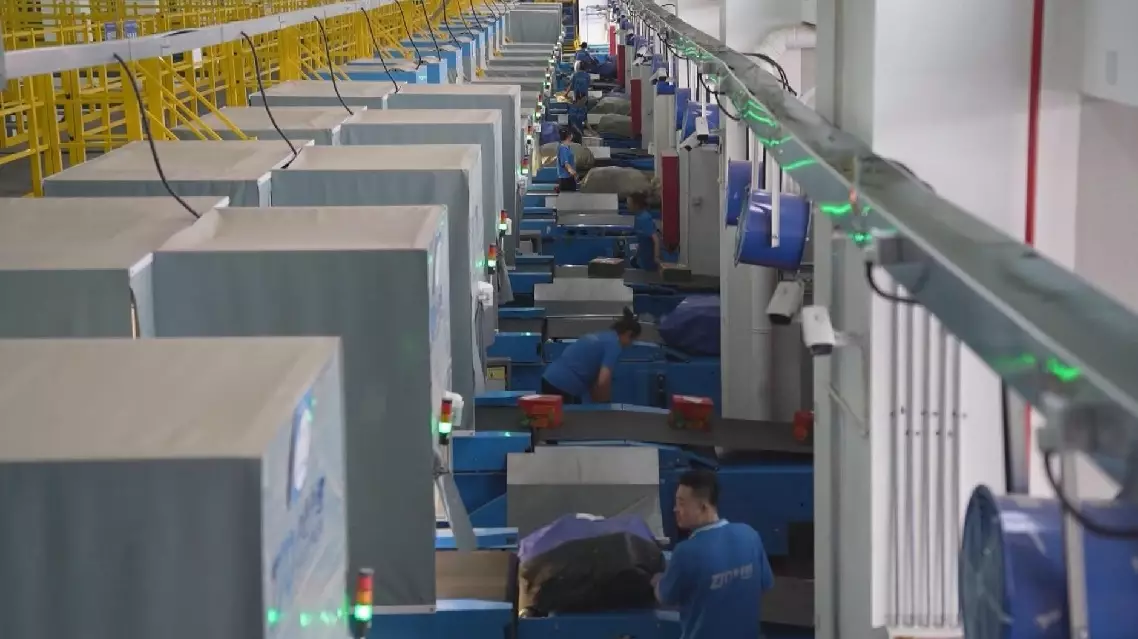
China's express delivery volume hits 50 billion so far this year
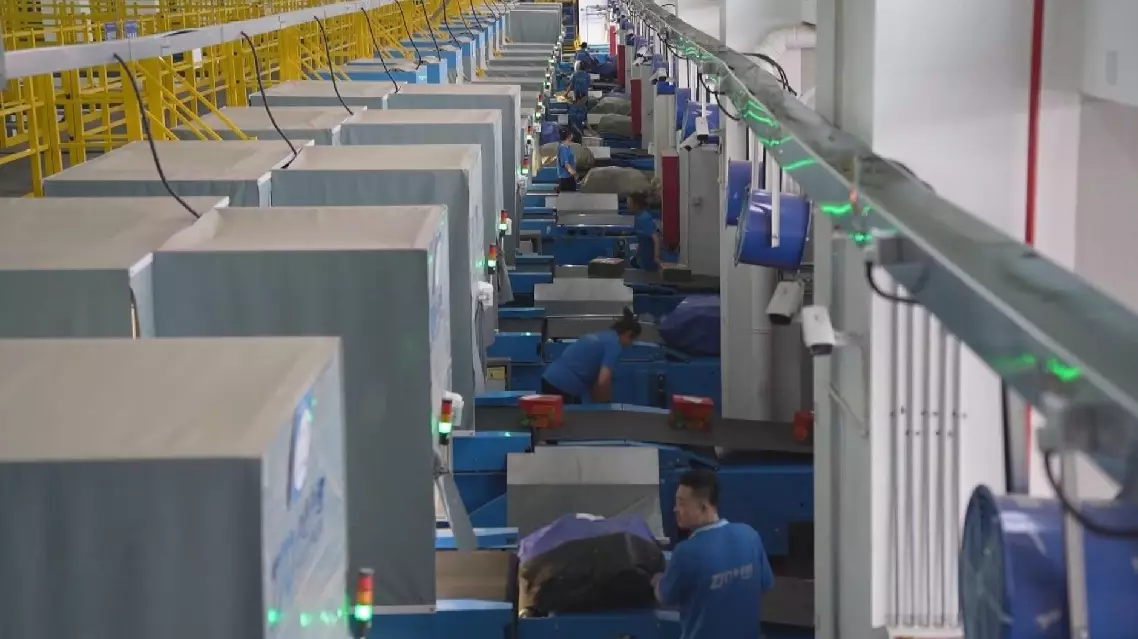
China's express delivery volume hits 50 billion so far this year
A deal to give the United States exclusive access to Ukraine's mineral resources has sparked contention among Ukrainian experts, who have described earlier drafts of the agreement as "unacceptable" and "colonial."
As the war between Ukraine and Russia is showing signs of winding down, another battle is quietly unfolding beneath Ukrainian soil, with competitors eying Ukraine's vast reserves of critical minerals.
The United States and Ukraine have signed an agreement to establish the U.S.-Ukraine Reconstruction Investment Fund, the U.S. Treasury Department announced on Wednesday.
For some, the minerals deal with the United States offers a lifeline for Kiev's war-torn economy. For others, it signals the quiet start of a resource takeover, raising concerns about what Ukraine may be giving away in exchange for support.
Ukraine is rich in critical resources such as graphite, lithium, and titanium. All these are vital to electric vehicles, the aerospace industry, and the high-tech supply chain.
At a graphite quarry roughly 400 km south from Kiev, capital of Ukraine, the roads give way to deep ruts and scattered debris, which means the mine site falls short of normal operation in wartime.
According to Ukraine's geological survey, the country holds 22 of the 50 strategic materials identified by the U.S. as critical.
As the global race for these resources intensifies, Washington is eager to secure reliable access. Ukraine, desperate for investment for reconstruction, has opened its doors. However, according to experts, the negotiations have been tense.
"When we had the first draft of this agreement, it was absolutely awful, absolutely unacceptable for Ukraine. It was also like a colonial agreement," said Volodymyr Landa, senior economist at the Center of Economic Strategy of Ukraine.
The country's mining sector is in dire need of foreign capital. At one of Ukraine's largest graphite deposits, infrastructure is minimal, with a few dogs, a guard, and an elderly tractor driver.
A Lviv-based mine owner said water pipes freeze over in winter, bringing operations to a halt. More importantly, the war has drained both labor and funding.
"If the Ukrainian government presents it for free, for 50 years with free rent, our resources will lose from that," said Ostap Kostiuk, CEO of Zavallivskyi Graphite, located in the Kirovohrad region.
Following a tense and reportedly humiliating visit to Washington in March, Ukrainian President Volodymyr Zelensky appears to have softened his stance on a minerals deal he once said he would never sign. The move has triggered public outcry at home.
"Now they (the U.S.) say 'give me money, no, lithium' for the guarantees. It's not fair, I think," said a local resident.
"I definitely started to respect America less. He (Trump) is not interested in Ukraine actually ending the war," another added.
This graphite deposit represents only a fraction of Ukraine's untapped potential. An estimated 30 percent of its critical minerals have already been extracted. The other 70 percent, still buried across vast swathes of the country, is what many believe Washington is ultimately eying.
"Please do everything to make this peace closer to us, closer to people, closer to Ukrainians. Because every day, every hour, every minute, it costs our Ukrainian nation one to five Ukrainian best guys' lives," said Kostiuk.
In the view of Professor Valeriy Pekar, a business scholar in Kyiv and Lviv, the Trump administration is not actually interested in securing peace for Ukraine.
"To take control of our resources, it is necessary to end the war. The American leadership declares themselves great peacemakers, but what they really do is not peacemaking. It's war mongering," he said.
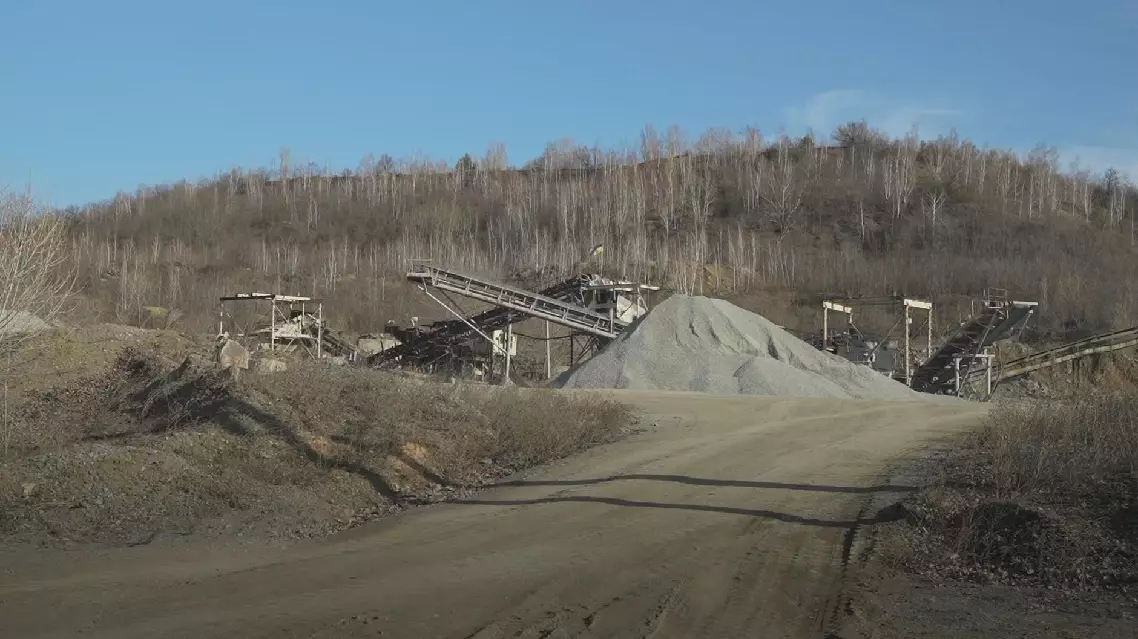
US interest in Ukraine's critical minerals draws public backlash





